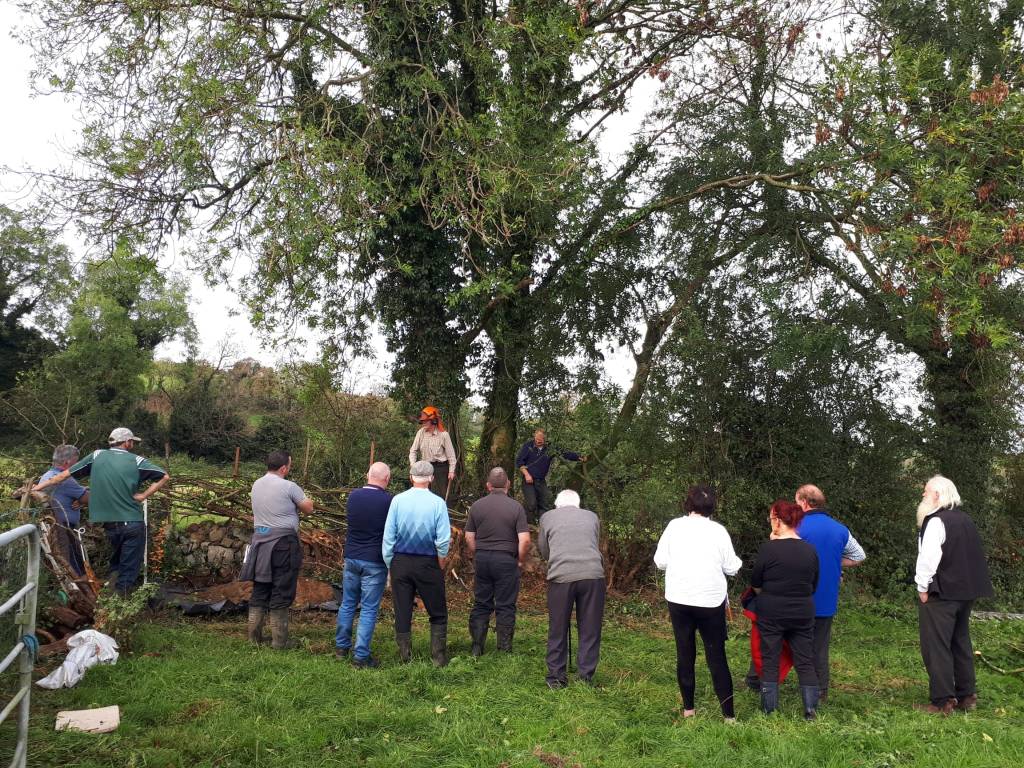Workshop at Rowan Wellness and Gardens
This time we’re joined by Mary McMullen of Rowan Wellness & Gardens – a centre for yoga, breathwork, meditation, nature and all things wellness. Mary’s gardens near Maudabawn in Cavan recently played host to Phil Wheal who delivered a very hands on workshop on creating and maintaining a “Food Forest” Garden. “Learning by doing” was the order of the day and all participants got mucky and active. But first things first…..
What is a food forest?
A food forest, also called a forest garden, is a diverse planting of edible plants that attempts to mimic the ecosystems and patterns found in nature. A well designed food forest:
- Places emphasis on trees, shrubs, perennials, and self-seeding annuals,
- Plants thickly and using ground covers to shade soil and suppress weeds,
- Uses nitrogen-fixing and nutrient-accumulating plants, chop-and-drop techniques, and returning wastes to the land to create healthy soil rather than applying fertilizer,
- Plants a diverse array of plants that attract beneficial insects to pollinate the fruit crops and keep pest populations from exploding and causing damage,
- Creates micro-climates and windbreaks which helps smaller plants thrive.
Through time it will create a diverse and rich ecosystem of productive plants that can be easily maintained and enjoyed.
Continue reading →





